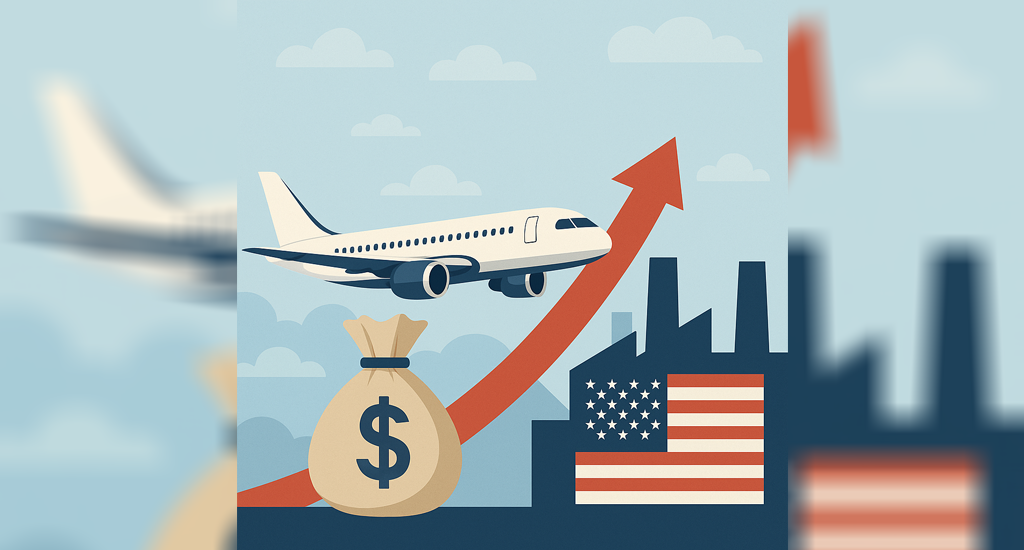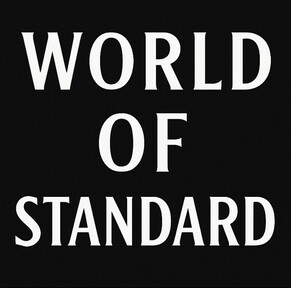Case Study: Global Aircraft Price Increases Due to U.S. Tariffs
21.07.2025By: Blagomir Simikić, Stevanović Law Office
The introduction of new U.S. tariffs has triggered a wave of aircraft price hikes in the global market. The aggressive trade policy of the United States — including high tariffs on imports of certain products and materials — has led to increased production and procurement costs of passenger planes worldwide. Airlines and manufacturers warn that these measures could slow deliveries, raise aircraft prices, and disrupt balance in the commercial aviation market.
Embraer Hit by Tariffs
One of the most significant examples is the Brazilian aircraft manufacturer Embraer, the third-largest in the world after Airbus and Boeing. The administration of U.S. President Donald Trump announced a 50% tariff on all imports from Brazil starting August 1, directly affecting Embraer’s passenger planes assembled in Brazil. Francisco Gomes Neto, Embraer’s CEO, warned that this punitive tariff would increase the price of each aircraft by around $9 million when sold in the U.S. Such a drastic price hike would likely be unacceptable to buyers — primarily U.S. airlines — meaning Embraer might be forced to slow or completely halt production of its most popular models.
Embraer is particularly vulnerable to these measures because the U.S. is its largest market, accounting for nearly half of Embraer’s commercial aircraft and up to 70% of its business jets. Its best-selling regional jet, the E175, is favored by American regional carriers like American Airlines (90 aircraft ordered) and SkyWest (over 16 aircraft on order). If the additional $9 million per aircraft cost had to be absorbed, deliveries of the E175 would become unprofitable under the new conditions. Neto warns that the consequences for the company could mirror those during the pandemic — when in 2020, Embraer’s revenue fell by about 30% — highlighting the gravity of the situation. Additionally, paradoxically, the tariffs would also harm U.S. suppliers of Embraer parts, as the Brazilian firm uses numerous U.S.-made components (engines, avionics, etc.) in its aircraft. If production halts, Embraer warns it would postpone planned purchases of U.S. parts worth up to $20 billion over the coming years, meaning American factories would also suffer. “This is a lose-lose situation,” Gomes Neto said, referring to the chain reaction affecting both the manufacturer and its suppliers.
Broader Impact on the Aircraft Market
Embraer’s case is part of a broader picture in which trade wars and tariffs are raising aircraft prices globally. Besides Brazil, the Trump administration has tightened tariff measures against a number of countries — raising the average U.S. tariff rate from 2.5% to 27% in the first half of 2025. Tariffs on key raw materials for the aviation industry add further pressure: for example, in June 2025, the U.S. doubled tariffs on steel and aluminum imports to 50%. Since aluminum and steel are core materials for aircraft manufacturing, price increases in these metals directly reflect on the cost of building new planes. Manufacturers like Boeing and Airbus are facing higher input costs, which consequently raises final aircraft prices for customers.
Even the world’s largest aircraft manufacturers are not immune to trade tensions. American Boeing was hit by Chinese countermeasures: due to the U.S.-China trade war, China at one point imposed high tariffs (125%) on American imports, leading Chinese airlines to suspend Boeing aircraft orders. This forced Boeing to redirect already-manufactured aircraft to other buyers, while Chinese carriers increased their orders with European Airbus. Such disruption led to increased demand for Airbus aircraft, potentially allowing price hikes due to limited market supply. Meanwhile, Boeing is losing important market share in China, impacting economies of scale and potentially raising fixed costs per aircraft.
Tensions are also rising between the U.S. and Europe. The European Union faces a proposed universal 10% tariff on its exports to the U.S. to avoid worse scenarios. However, Trump’s threat to raise that tariff to as much as 30% by early August has cooled negotiations. The EU warned that such high tariffs could effectively halt transatlantic trade in certain products, including passenger planes. Historically, the subsidy dispute between Airbus and Boeing had already led to mutual tariffs — in 2019, the U.S. imposed a 15% tariff on Airbus aircraft, and the EU responded with tariffs on Boeing aircraft. These measures were temporarily suspended under a 2021 agreement, but now there is concern that new trade conflicts could reignite. If European aircraft were also hit by U.S. tariffs (or vice versa), that would further raise global prices for new planes, adding costs for airlines.
Key Factors Driving Aircraft Price Increases
High import tariffs on finished aircraft: Directly raise aircraft prices from countries targeted by tariffs (e.g., Embraer aircraft from Brazil would increase by $9 million each due to a 50% tariff).
Tariffs on raw materials and components: Higher aluminum and steel prices due to 50% U.S. tariffs raise production costs for all aircraft manufacturers. More expensive components (engines, electronics) also mean higher final prices.
Trade retaliation by other countries: Countermeasures like China’s tariffs on American aircraft or potential European tariffs on Boeing create shortages or redirect demand, increasing prices for remaining options in the market.
Limited competition in certain segments: If one manufacturer weakens (e.g., Embraer in the regional segment), airlines have fewer alternative suppliers. This reduces buyer bargaining power and can lead to higher prices from others due to increased demand.
Inflation and supply chain disruptions: Unrelated to tariffs, post-pandemic demand recovery and earlier supply chain issues have already pressured aircraft prices. Tariffs add an extra layer of costs to an already expensive production process.
Impact on Airlines and Passengers
Higher prices for new aircraft mean airlines will pay more to renew their fleets or delay purchasing new aircraft. Regional carriers in the U.S. are particularly affected, relying on the Embraer E175 — if those aircraft become more expensive or deliveries are delayed, some routes may lack new aircraft, and companies may keep older planes in service longer. Older aircraft are less efficient and more costly to maintain, increasing operating costs for carriers. Experts warn that part of these costs could ultimately be passed on to passengers through higher ticket prices or additional fees.
Globally, the “tariff war” threatens to slow the aviation industry’s post-pandemic recovery. If a resolution is not found, aircraft manufacturers may reduce production rates, leading to longer wait times for new planes and potentially higher prices in the used aircraft market (due to increased demand for alternatives). Also, reduced competition — if Embraer temporarily halts — could lead to fewer options for airlines and greater reliance on the Airbus-Boeing duopoly, which would have less incentive to keep prices low.
Conclusion:
The introduction of high U.S. tariffs has already triggered a chain of events that is making aircraft more expensive worldwide. From Brazil and China, through Europe, and back to American companies themselves, the effects are felt across the entire aviation supply chain. In the short term, this means higher prices and uncertainty for airlines and manufacturers; in the long term, it could slow technological progress and ecological fleet transitions (as new, more fuel-efficient aircraft become harder to obtain under such conditions). The industry watches the situation with concern, hoping for disputes to be resolved through negotiations to avoid a scenario in which trade barriers hinder civil aviation recovery and growth.
/ / /
"Standard Prva" LLC Bijeljina is a company registered in Bijeljina at the District Commercial Court in Bijeljina. Company’s activities are accountancy, repurchases of receivables, angel investing and other related services. Distressed debt is a part of the Group within which the company repurchases the receivables, which function and are not returned regularly.
Lawyer’s Office Stevanović is the leading lawyer’s office in the region with the seat in Bijeljina. The LO abbreviation represents Lawyer’s Office of Vesna Stevanović and Lawyer’s Office of Miloš Stevanović.
Contact for media press@advokati-stevanovic.com or via telephone 00 387 55 230 000 or 00387 55 22 4444.





